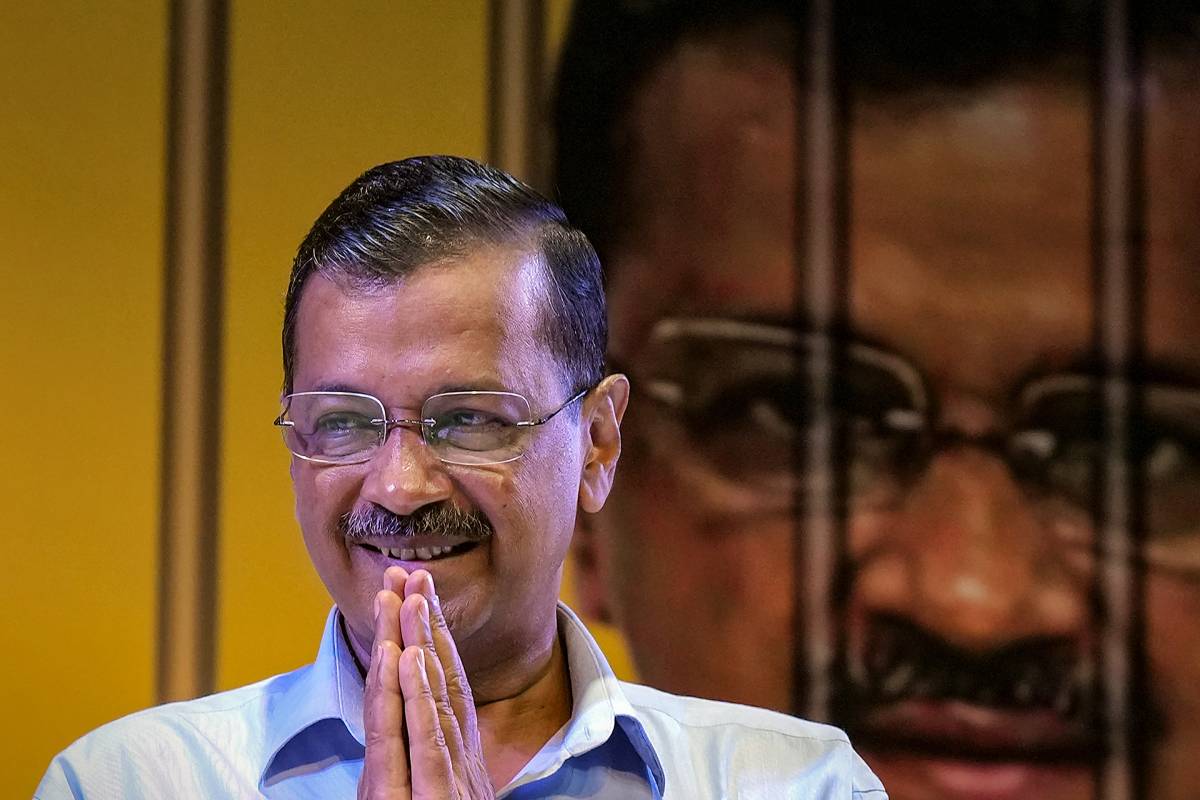Arvind Kejriwal Bail Updates: In the liquor policy case, the Supreme Court on Friday, September 13, while delivering its verdict on Delhi Chief Minister Arvind Kejriwal’s bail plea, granted him bail. The Supreme Court has granted bail to Kejriwal with conditions. Under this, Arvind Kejriwal will not be allowed to come to his office. In addition to this, he will have to appear before the court during the trial. Kejriwal cannot even sign government files. It may be noted that Arvind Kejriwal had filed two separate petitions challenging his arrest and denial of bail in the corruption case registered by the CBI. The Supreme Court has ruled on the matter.
What did Kejriwal’s lawyer say?
On Delhi CM Arvind Kejriwal’s bail, advocate Sanjeev Nasiyar says, “Bail has been granted in the CBI case. This is a big day of relief. CM was in jail for the last 5 months. As far as detention is concerned, the two judges have different opinions. I will be able to comment on it once the order comes. There are some regular conditions. He will not be able to make general comments on matters related to CBI because the case is pending in court. They will have to be present in court whenever they are called. We will be able to see him soon in Delhi and then in Haryana.”
What did the High Court say about Arvind Kejriwal?
On September 5, the bench comprising Justice Surya Kant and Justice Ujjwal Bhuinya had reserved its decision on Kejriwal’s petitions. CBI had arrested Aam Aadmi Party (AAP) coordinator Arvind Kejriwal in this case on June 26. He had approached the Supreme Court challenging the August 5 order of the Delhi High Court, in which the High Court had upheld his arrest in this corruption case. The High Court had said that after Kejriwal’s arrest by the CBI, there is now sufficient evidence against him and looking at the relevant evidence, it cannot be said that the arrest was wanton or illegal. The High Court had also allowed him to approach the lower court to file his bail plea.
What is the matter regarding Arvind Kejriwal?
This case is related to alleged corruption in the formulation and implementation of the Delhi Government’s Liquor Policy 2021-22. This policy was later repealed. The ED had registered a separate case of money laundering in connection with the alleged scam. According to CBI and ED, irregularities were committed while amending the liquor policy and undue benefits were given to the licensees. On July 12, the apex court had granted interim bail to Kejriwal in the money laundering case. The apex court referred it to a larger bench (a five-member constitutional bench) for further consideration in the context of three questions on the aspect of “necessity and compulsion of arrest” under the Prevention of Money Laundering (Prevention) Act (PMLA). ED had arrested Kejriwal on March 21 in the money laundering case.
Arvind Kejriwal strongly opposed the CBI argument
During the September 5 hearing on his petition in the corruption case. Arvind Kejriwal He had strongly opposed the CBI’s argument that he should first approach the lower court for bail. Additional Solicitor General S., representing the CBI. Questioning the merits of Kejriwal’s petitions, V. Raju had requested the Supreme Court that the high court also ask him (Kejriwal) to approach the lower court in connection with the petition challenging the ED’s arrest.
Disclaimer:
The information contained in this post is for general information purposes only. We make no representations or warranties of any kind, express or implied, about the completeness, accuracy, reliability, suitability or availability with respect to the website or the information, products, services, or related graphics contained on the post for any purpose.
We respect the intellectual property rights of content creators. If you are the owner of any material featured on our website and have concerns about its use, please contact us. We are committed to addressing any copyright issues promptly and will remove any material within 2 days of receiving a request from the rightful owner.

